contents
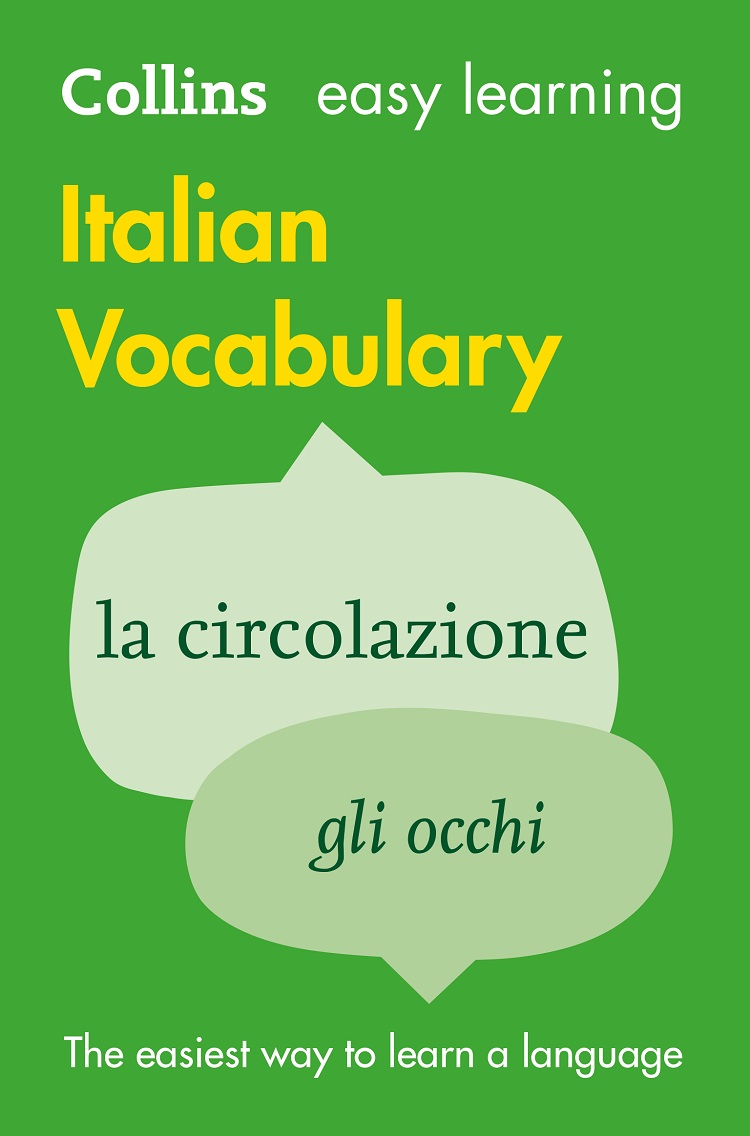
Published by Collins An imprint of HarperCollins Publishers Westerhill Road Bishopbriggs Glasgow G64 2QT Second edition 2016 HarperCollins Publishers 2010, 2016 Collins is a registered trademark of HarperCollins Publishers Limited www.collinsdictionary.com www.collins.co.uk/languagesupport Typeset by Davidson Publishing Solutions, Glasgow All rights reserved under International and Pan-American Copyright Conventions. By payment of the required fees, you have been granted the non-exclusive, non-transferable right to access and read the text of this e-book on screen. No part of this text may be reproduced, transmitted, downloaded, decompiled, reverse engineered, or stored in or introduced into any information storage and retrieval system, in any form or by any means, whether electronic or mechanical, now known or hereafter invented, without the express written permission of HarperCollins. Entered words that we have reason to believe constitute trademarks have been designated as such. However, neither the presence nor absence of such designation should be regarded as affecting the legal status of any trademark. The contents of this publication are believed correct at the time of creation.
Nevertheless the Publisher can accept no responsibility for errors or omissions, changes in the detail given or for any expense or loss thereby caused. HarperCollins does not warrant that any website mentioned in this title will be provided uninterrupted, that any website will be error free, that defects will be corrected, or that the website or the server that makes it available are free of viruses or bugs. For full terms and conditions please refer to the site terms provided on the website. If you would like to comment on any aspect of this book, please contact us at the given address or online. E-mail:  www.facebook.com/collinsdictionary
www.facebook.com/collinsdictionary  @collinsdict Acknowledgements We would like to thank those authors and publishers who kindly gave permission for copyright material to be used in the Collins Corpus. We would also like to thank Times Newspapers Ltd for providing valuable data.
@collinsdict Acknowledgements We would like to thank those authors and publishers who kindly gave permission for copyright material to be used in the Collins Corpus. We would also like to thank Times Newspapers Ltd for providing valuable data.
MANAGING EDITOR Maree Airlee CONTRIBUTORS Francesca Logi Janice McNeillie FOR THE PUBLISHER Gerry Breslin Rachel Grocott eBook Edition May 2016
ISBN 9780008142070 Version: 2016-04-01
The
Easy Learning Italian Vocabulary is designed for both young and adult learners. Whether you are starting to learn Italian for the very first time, revising for school exams or simply want to brush up on your Italian, the
Easy Learning Italian Vocabulary offers you the information you require in a clear and accessible format. This book is divided into 50 topics , arranged in alphabetical order. This thematic approach enables you to learn related words and phrases together, so that you can become confident in using particular vocabulary in context. Vocabulary within each topic is divided into nouns and useful phrases which are aimed at helping you to express yourself in idiomatic Italian. Vocabulary within each topic is graded to help you prioritize your learning.
Essential words include the basic words you will need to be able to communicate effectively, important words help expand your knowledge, and useful words provide additional vocabulary which will enable you to express yourself more fully. Nouns are grouped by gender: masculine ( il ) nouns are given together, as are feminine ( la ) nouns, enabling you to memorize words according to their gender. In addition, all feminine forms of adjectives are shown, as are irregular, invariable and gender-changing noun plurals. At the end of the book you will find a list of supplementary vocabulary , grouped according to part of speech adjective, verb, noun and so on. This is vocabulary which you will come across in many everyday situations.
GENDER
In Italian, nouns are either masculine or feminine.
Most masculine nouns take the article il . This article becomes l when the noun begins with a vowel and becomes lo when the noun begins with s+ consonant (eg sc , sp , st ), or begins gn , pn , ps , x , y or z . Feminine nouns take la or l (when the noun begins with a vowel). Many masculine nouns end in o ; many feminine nouns end in a . Both masculine and feminine nouns can end in e . o > i (il posto > i posti) a > e (la pizza > le pizze) e > i (il padre, la madre > i padri, le madri) Articles change as follows:
| masculine: | il > i | l > gli | lo > gli |
| feminine: | la > le | l > le |
Nouns that are imported into Italian (such as bar , computer , men , sport ) stay the same in the plural (
pl inv). o >
i (il post
o > i post
i) a >
e (la pizz
a > le pizz
e) e >
i (il padr
e, la madr
e > i padr
i, le madr
i) Articles change as follows:
| masculine: | il > i | l > gli | lo > gli |
| feminine: | la > le | l > le |
Nouns that are imported into Italian (such as bar , computer , men , sport ) stay the same in the plural (
pl inv).
They are generally masculine: il bar > i bar , il computer > i computer , il men > i men , lo sport > gli sport .
PLURAL SPELLING CHANGES
Most nouns ending -co , -ca , -go and -ga often require an h inserting in the plural to retain the hard kuh and guh sounds: il parco > i parchi , la banca > le banche il lago > i laghi , la targa > le targhe Where spelling changes occur in the plural we have included the plural ending.
ABBREVIATIONS
| adj | adjective |
| adv | adverb |
| conj | conjunction |
| f | feminine |
| inv | invariable |
| m | masculine |
| m+f | masculine and feminine form |
| n | noun |
| pl | plural |
| pl inv | invariable, with no change to noun in the plural |
| prep | preposition |
| qc | qualcosa |
| qn | qualcuno |
| sb | somebody |
| sing | singular |
| sth | something |
The swung dash ~ is used to indicate no change to a word in the plural of a compound noun.
ESSENTIAL WORDS(masculine)
| un | aereo | plane |
| un | aeroplano | aeroplane |
| un | aeroporto | airport |
| un | agente di viaggio | travel agent |
| l | arrivo | arrival |
| il | bagaglio | luggage |
| il | bagaglio a mano | hand luggage |
| il | banco | desk |
| il | biglietto | ticket |
| il | carrello | trolley |
| il | check-in | check in |
| il | doganiere | |

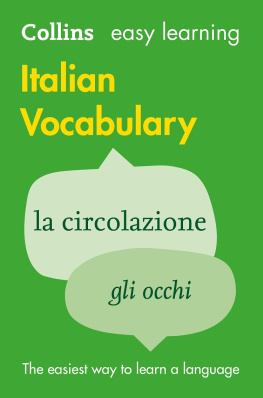






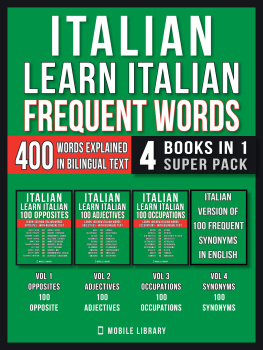

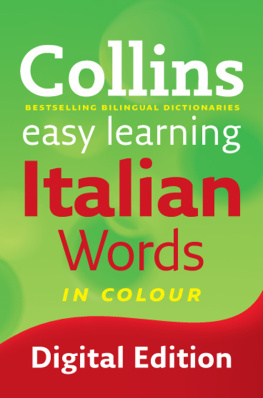
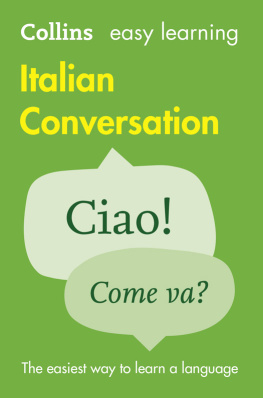
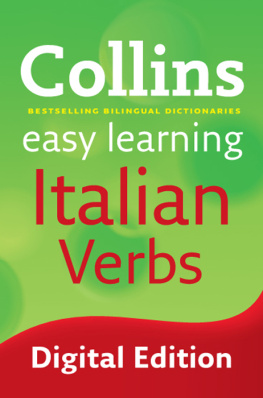
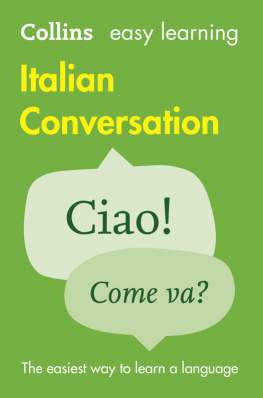
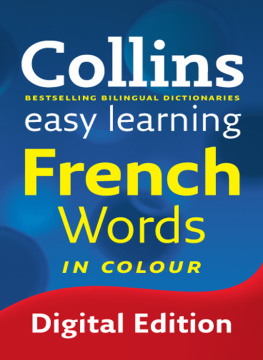
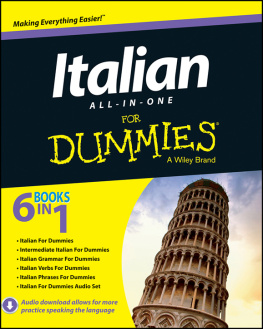
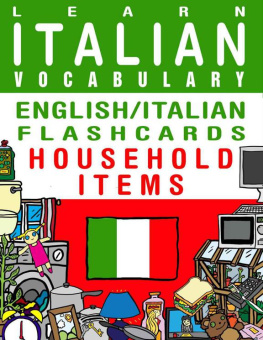

 www.facebook.com/collinsdictionary
www.facebook.com/collinsdictionary  @collinsdict Acknowledgements We would like to thank those authors and publishers who kindly gave permission for copyright material to be used in the Collins Corpus. We would also like to thank Times Newspapers Ltd for providing valuable data.
@collinsdict Acknowledgements We would like to thank those authors and publishers who kindly gave permission for copyright material to be used in the Collins Corpus. We would also like to thank Times Newspapers Ltd for providing valuable data.